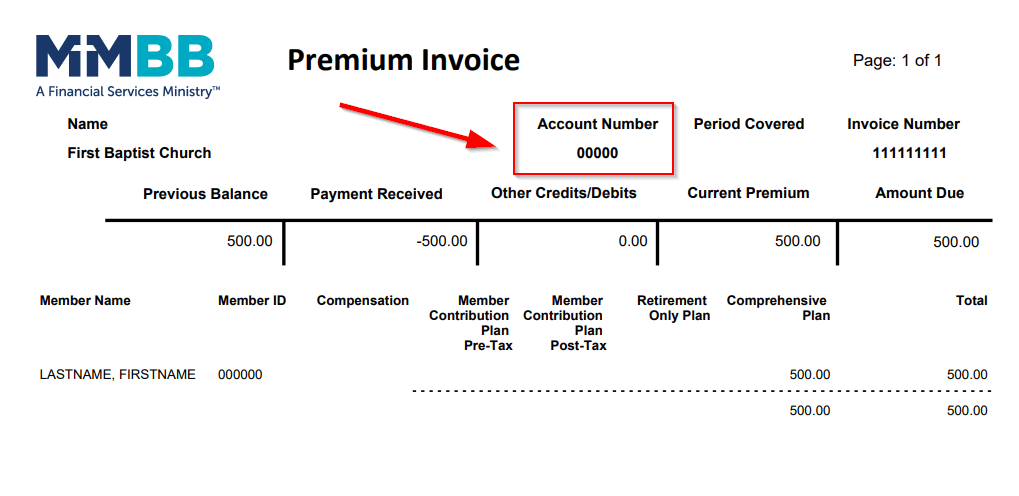You have been saving for retirement and your account has been growing steadily. Maybe your employer provides an annual matching contribution that has been a great incentive to build up your 403(b) or 401(k) retirement account — and with favorable interest rates and investments, it has turned into a nice nest egg.
For many people, their retirement account represents the largest percentage of their net worth outside of their home, if they are homeowners. It can be very satisfying to watch the account grow.
However, for too many Americans, their retirement account becomes the first “go-to” place to borrow from when they hit a financial rough patch or are faced with a large, unexpected expense.
Not surprisingly, the most common reasons that people take a loan from their 403(b) are:
• Putting money down on a house
• Paying back a debt owed to the IRS
• Paying for medical expenses
• Covering education expenses
Yet, most financial professionals advise strongly against borrowing from your 403(b) or 401(k), and some would insist that advice applies no matter what the circumstances are. It can be very tempting and even appear to be advantageous to take a 403(b) loan, but borrowing from the money you are setting aside for retirement has significant downsides.
First, know the basics of borrowing from your 403(b)
Employers are not required to offer the provision for employees to borrow from their retirement account. It is completely up to their discretion whether to make this service available to plan participants.
The IRS allows you to borrow up to $50,000 or 50% of your vested account balance, whichever is less during a 12-month period. However, even though it’s your money, the employer can set terms and conditions for the loan, including restricting the loan to specific purposes, establishing limitations on the maximum amount, determining the interest rate and the repayment period on any vesting rules that might apply.
Generally, unless the loan is for a primary residence, you have up to five years to repay the loan with interest.
Interest rates for 403(b) loans are typically much lower than for a personal loan attained from a bank. Most likely it will be about one or two points above the prime rate. And the interest goes back into your account, not to a bank or lender. Many tout this as a small price to pay to borrow from yourself.
But consider the following reasons for not borrowing from your 403(b)/401(k):
The money used to repay the loan will cost you more than your original investment. Part of what makes a 403(b) attractive is that you are contributing pre-tax dollars, so you have more of your money working for you. But the money used to repay the loan (most likely from a payroll deduction) will come from after-tax dollars.
For example, if you are in the 24% tax bracket, you will have 24% less to pay the principal amount and the interest owed. For every dollar you earn, you will be left with 76 cents to pay the loan with the rest going to pay for taxes.
You lose out on earnings potential. During the time you are paying back the funds you borrowed, any opportunity for investment growth on that money is lost. When you factor in the power of compound earnings, if the $10,000 you borrowed grew hypothetically at 7% annually over a five-year period, it would equal $14,025.52. Taking money out of your 403(b) reduces your earnings potential, and those missed earnings are more difficult to make up the closer you are to retirement. Taken together, the loss in earnings is a high price to pay when you consider the additional tax costs as well.
While you repay the loan, you might be unable to contribute to your 403(b). Some plans have a stipulation that you cannot make contributions to the plan until your loan is repaid1. Even when that is not the case, most people who borrow from their retirement accounts are not able to afford contributions to the plan while also repaying the loan since both would most likely be payroll deductions.
If your employer offers a 403(b)-matching plan, you miss out on that free money while you are not contributing. This could further widen the gap in potential earnings.
While you repay the loan, your take-home pay is reduced. In most cases, repayment of the loan is arranged through salary deduction from after-tax dollars, which results in less take-home pay available for other expenses. Keep in mind that this continues for the duration of the loan repayment period, anywhere between one to five years.
If you default on the loan, it will cost you. According to a study by the Wharton Pension Research Council, 90% of people who borrow against their 403(b)/401(k) are able to repay the loan within the five-year period. However, if you experience unexpected financial hardship and default on the loan, it automatically converts to a withdrawal. The money will be taxed at your current income tax rate, and it will be subject to a 10% early withdrawal penalty if you are under age 59-1/2. Even if you meet the criteria for 401(k) hardship withdrawals, which are set by the IRS (see irs.gov), you will still have to pay income taxes on the amount withdrawn.
Your job mobility could be impacted. If you change jobs or lose your job, you have to repay the loan much sooner. In the past, borrowers had to repay the loan within 60 days. However, tax bills passed in 2017 extended the period of time to place the money in an IRA by the next tax-filing deadline. If you miss that deadline, it becomes a distribution and will be subject to taxes and an early withdrawal penalty for those under age 59-1/2.
Early repayment can be difficult to achieve. While borrowers often have the best intentions to repay a 403(b) loan earlier than the five years allowed, that rarely happens. Because the loan amount is typically pretty sizable, it can present more of a challenge than initially thought.
According to Investopedia.com, this is especially true for younger plan participants in their 20s who often borrow 26% of their 401k assets versus 11% for the average person. On an account worth $50,000, 26% would be $13,000 — a considerable amount for a person in their mid-to late 20s, especially if they are also repaying student loans and getting established financially.
So, what needs to be top of mind before moving forward with taking a loan from your retirement account? The biggest drawbacks are the loss of earnings potential and the inability to make contributions while you make payments on the loan. Both can have a long-term effect depending on your age and time horizon and other financial realities.
It’s a good idea to speak with a financial professional who can help you review your total financial picture and might suggest other alternatives that might be appropriate for you.
Explore additional insights on 403(b) accounts:
Top 7 Strategies to Reach Your 403(b) Goals
Roth vs. 403B: Unlocking The Secrets To Smart Retirement Planning
Colin Nass, CFP®, AEP®, RICP® is the Director of Financial Planning at MMBB Financial Services. He uses his 20+ years of financial planning and investment experience to assist members in achieving financial goals.
1 https://www.businessnewsdaily.com/11286-borrowing-against-401k.html
Back to Financial Resource Center









